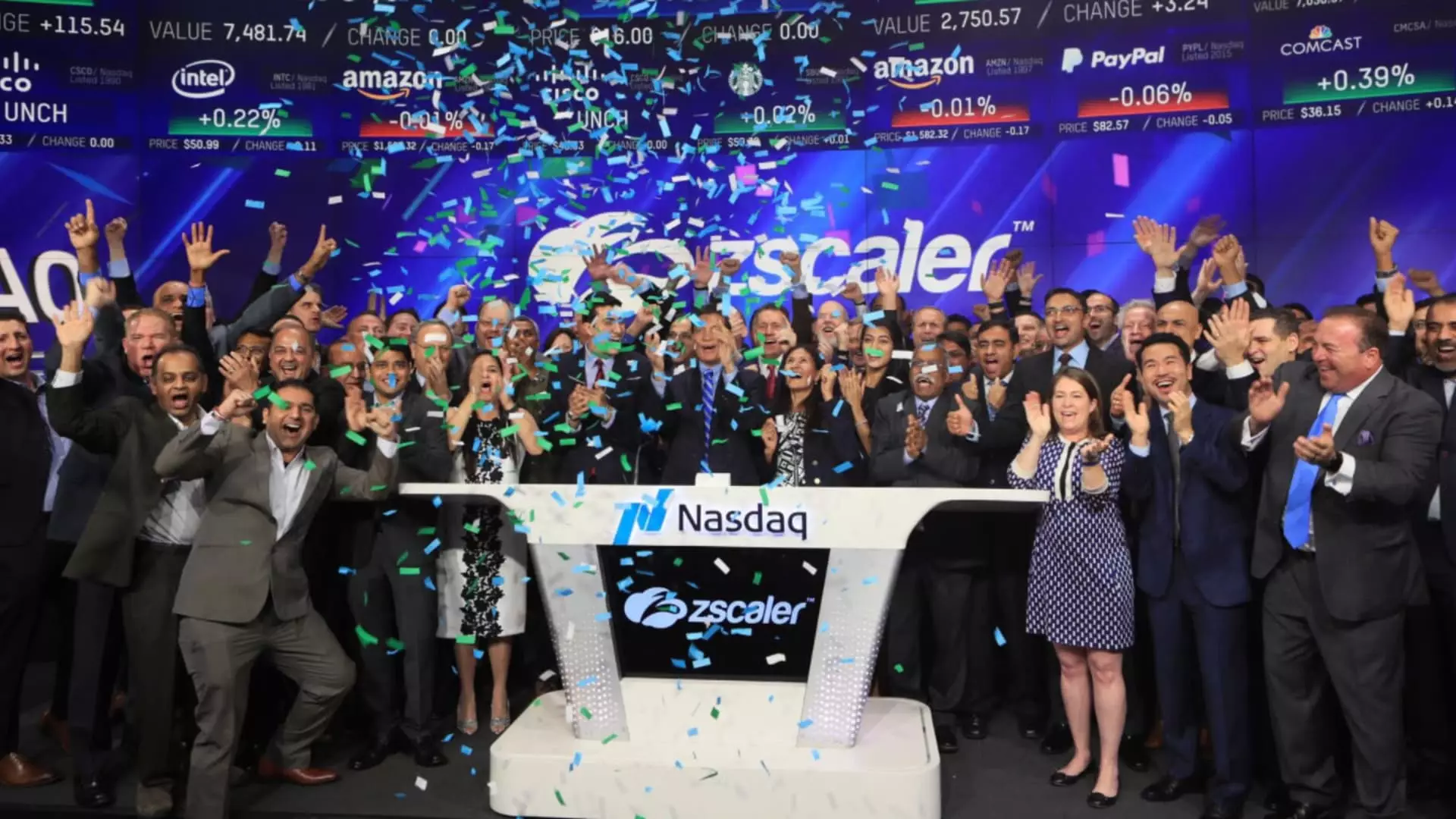The cybersecurity realm is often riddled with uncertainty, but Zscaler stands as a beacon of resilience, showcasing how innovation can drive success despite challenging market conditions. Following the announcement of its third fiscal quarter results, the company witnessed a remarkable stock surge of 9%, a testament to its ability to harness artificial intelligence in a landscape that is increasingly dependent on technology. With a 23% revenue increase, reaching $678 million, Zscaler’s performance surpassed expectations and indicated that businesses like theirs are not merely surviving; they are thriving by adopting cutting-edge solutions. CEO Jay Chaudhry articulated the essence of this success in his declaration regarding the necessity for refined AI security measures, revealing a narrative that blends opportunity with obligation.
Zero-Trust: The Backbone of Cybersecurity
Zscaler’s zero-trust security platform is the cornerstone of its strategy, positioning the company as an industry leader. The concept of zero-trust—wherein trust is never implied, and every access request is scrutinized—resonates with the current fears surrounding data breaches. In an era defined by remote work and cloud integration, Zscaler’s model offers a fortress-like security that is essential for businesses seeking to protect sensitive data. As companies navigate the murky waters of evolving threats, Zscaler not only addresses present concerns but also anticipates future challenges, solidifying its reputation as an indispensable partner in the cybersecurity sector.
A Mixed Bag of Industry Performance
However, Zscaler’s triumph stands in stark contrast to some of its peers, notably SentinelOne and Palo Alto Networks, both of which found themselves grappling with disappointing forecasts and results. This juxtaposition raises pertinent questions about the sustainability of growth within the cybersecurity sphere—can Zscaler’s model remain effective in the face of a dynamic and often volatile marketplace? While the stock’s upward trajectory offers hope, one cannot dismiss the broader struggles faced by other companies in this tumultuous climate. Zscaler’s net loss of $4.1 million, a stark shift from the net income of $19.1 million reported in the previous year, also signals that even strong performers must navigate difficult waters.
Forward-Looking Guidance and Strategic Appointments
Despite these hurdles, Zscaler’s proactive stance on future earnings is commendable. With guidance pointing toward adjusted earnings between 79 and 80 cents per share for the coming quarter—exceeding estimates by the LSEG—there is palpable optimism. This forward-looking strategy is crucial, particularly as the company recently appointed Kevin Rubin as its chief financial officer, indicating a commitment to strategic growth management. His experience could be the linchpin in steering Zscaler toward sustained success, especially as client needs continue to evolve alongside technological advancements.
A Proud Moment for Cybersecurity Innovation
Zscaler’s performance is more than just a company milestone; it underscores a growing trend where organizations are prioritizing security in their digital transformations. The synergy between artificial intelligence and cybersecurity is only bound to deepen, and Zscaler appears ready to lead this charge. While others falter, Zscaler stands tall, a shining example of how agility, foresight, and innovation can yield substantial rewards. The confidence embodied in their latest earnings report illuminates a path forward in an industry desperately in need of robust leadership and visionary thinking. In a time riddled with economic anxiety, Zscaler brings a refreshing narrative of optimism to a matter of critical global importance.

